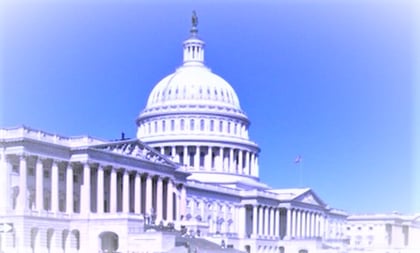House members might overcome partisan gridlock this year and pass a bill that would help older people who botch the Medicare Part B coverage signup process.
The bill calls for the Social Security Administration to send people nearing the usual Medicare eligibility age clear notices explaining what Medicare Part B coverage is, how the Medicare Part B enrollment process works, and why signing up for Medicare Part B coverage late is a bad idea.
For people who do sign up for Medicare Part B coverage late, the bill would provide faster access to coverage.
The bill also would give the secretary of the U.S. Department of Health and Human Services the ability to improve late enrollers’ access to Medicare Part B coverage, if those people live in areas affected by emergencies or disasters.
Resources
- A copy of a CBO analysis of H.R. 2477 is available here.
- The H.R. 2477 Congress.gov page is available here.
- The S. 1280 Congress.gov page is available here.
- An article about Medicare Part B premiums is available here.
Rep. Raul Ruiz, D-Calif., is the lead sponsor for the House version of the Beneficiary Enrollment Notification and Eligibility Simplification Act of 2019 (BENES Act of 2019) bill, H.R. 2477. The bill has 18 sponsors, including seven cosponsors who are Republicans.
The Senate companion bill, S. 1280, was introduced by Sen. Bob Casey, D-Pa. That bill has 11 cosponsors, including Sen. Susan Collins, R-Maine.
The House version of the BENES Act bill is under the jurisdiction of the House Ways and Means Committee and the House Energy and Commerce Committee. Members of the House Energy and Commerce Committee approved H.R. 2477 in July by a voice vote.
The Senate version, S. 1280, is under the jurisdiction of the Senate Finance Committee. The Senate Finance Committee has not yet taken any action on it.
Members of Congress have had a hard time passing much legislation in recent years, but they have passed some significant bipartisan bills affecting health benefits for older people.
In 2016, for example, members of Congress succeeded at passing the bipartisan 21st Century Cures Act. That act may be best known for encouraging the Medicare program to pay for telehealth services.
Why the Bill?
Medicare is a federally run program that provides medical benefits for Americans who turn 65, qualify for Social Security Disability Insurance benefits, or who suffer from severe enough kidney disease that they need a kidney transplant or are getting kidney dialysis. It covers the cost of physician services and outpatient services.
Medicare Part A covers hospitalization costs. For most enrollees, Medicare Part A coverage is free, and enrollment happens automatically.
Medicare program designers have used a “late enrollment penalty” system, or monthly premium surcharge requirement, to try to nudge consumers to start paying Medicare Part B premiums immediately after they turn 65, instead of waiting until they feel sick to pay for that coverage.
Normally, people who turn 65 must sign up for Medicare Part B coverage within a period starting three months before the month in which they turn 65 or within one month after they turn 65 to get immediate access to Medicare Part B coverage, without worrying about having to pay the late enrollment penalty, according to a Congressional Budget Office (CBO) analysis of H.R. 2477. However, they must wait one or two months before their Part B coverage kicks in.









 November 10, 2020 at 10:08 AM
November 10, 2020 at 10:08 AM











